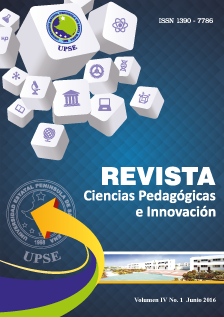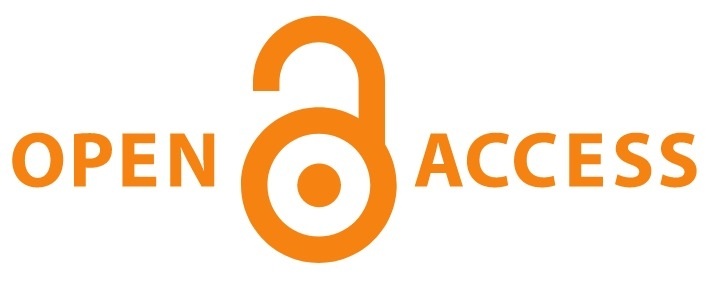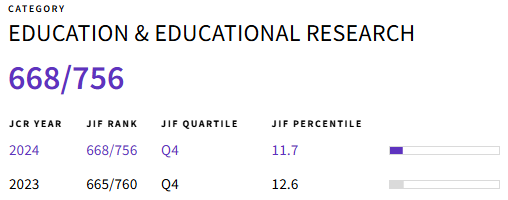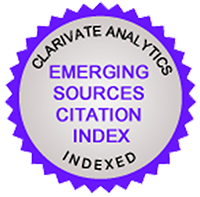New academic horizons for the studies of information and communication technologies in Ecuador
DOI:
https://doi.org/10.26423/rcpi.v4i1.118Keywords:
TIC, critical pedagogy, connectivism, neurolearning, interdisciplinarity, innovationAbstract
Aiming at re-shaping the academic horizon of the Information and Communication Technologies (ICT), so that professionals and the correspondingtechnologicaldevelopment come up to the current Ecuadorian problems, we first undertake the critical review of the historical evolution of such horizon. As it will be shown, the structuring of the studies in this knowledge field has been characterized by a clearly positivistic and instrumental orientation which is inadequate to achieve an effective realization of the constitutional principle of good-living or SumakKawsay. The nature of these technologies makes that the problems to be concerned of are global, but nevertheless there are challenges, opportunities, specifically Ecuadorian we have to consider. A restructuring of the knowledge related to ICTs is thus proposed, based on an integration of knowledge which combines interdisciplinary and transdisciplinary methodologies targeting innovative, responsible and sustainable solutions. On this basis, a critical reworking of the curriculum in the light of the current pedagogical knowledge (particularly the one provided by connectionism, neurolearning and, above all, critical pedagogy.
Downloads
References
Mattelart, A. Historia de la Sociedad de la Información. Barcelona: Paidós; 2007.
Aschoff, V. Geschichte der Nachrichtentechnik. Band 1: Beiträge zur Geschichte der Nachrichten - technik von ihren Anfängen bis zum Ende des 18. Jahrhunderts. Berlin: Springer Verlag; 1989.
Chevalier, M. Lettres sur l'Amérique du Nord. París: Librairie C. Gosselin; 1837.
Díaz Nafría, J.M. The need for a systematic systems approach to security. TripleC. 2011; 9(1): 93-121.
Díaz Nafría, J.M. Ethics at the age of information. Systema. 2014; 2(1): 43-52.
AsambleaNacional. Constituciónde la República del Ecuador. Quito: Asamblea Constuyente; 2008 [Accesible en: http://www.asambleanacio - nal.gob.ec/]
Horkheimer, M. Teoría tradicional y teoría crítica. Barcelona: Paidós; 2000.
Chomsky, N. Los Mercados y la “sustancia de la sociedad”. En J.E: García-Albea, N. Catalá, J. A. Díez Calzada (coords.), Los límites de la Globalización, Barcelona: Ariel; 2002.
Suppe, F. (ed.). Structure of Scientific Theories, 2nd edn. Urbana:University of Illinois Press; 1977.
Milanovic, B. Global Inequality and the Global Inequality Extraction Ratio. The Story of the Past Two Centuries. Policy Research Working Paper 5044. World Bank - Development Research Group; 2009.
Jolly, R. Inequality in Historical Perspective. ResearchPaper No. 2006/32. Helsinki: World Institute for Development Economic Research, United Nations University; 2006.
European Data Protection Supervision Unión Europea. Towards a new digital ethics - Data, dignity and technology. Opinion 4/2015 [Internet]. Bruselas: European Data Protection Supervision Unión Europea; 2005 [Consultado en junio de 2016] Accesible en: https://secure.edps.europa. eu
Francisco. Carta Encíclica Laudato si’, n.3. [Internet]. Vaticano; 2015 [Consultado en junio de 2016] Accesible en: http://w2.vatican.va/content/francesco/es/encyclicals
Ramirez Bravo, R. La pedagogía crítica. Una manera ética de generar procesos educativos. Folios. 2008; 28, 108-119.
Harris, M. Antropología cultural. Madrid: Alianza; 1995.
Pierce, J.R. Signals. The Science of Telecommunications. London, UK: W H Freeman & Co.; 1990.
Noble, D.F. Progress Without People: New Technology, Unemployment, and the Message of Resistance. Toronto: Between the Lines; 1995.
Noble, D.F. Forces of Production. A Social History of Industrial Automation. New Brunswick, New Jersey: Transaction Publisher; 2011.
Díaz Nafría, J.M. Telecomunicación e historia.Le Monde Diplomatique ed. Española. 2007; 10(35): 30. [Accesibleen: https://bitrum.wordpress.com/]
Warschauer, M. Technology and Social Inclusion: Rethinking the Digital Divide. Cambridge, Mass.: Massachusetts Institute of Technology; 2004.
Chesbrough, H. W. Open Innovation. The New Imperative for Creating and Profiting from Technology. Boston: Harvard Business SchoolPress; 2003.
Comisión Europea – CE. Europe 2020 in Swe - den [Internet]. Bruselas: Comisión Europea [consultado en agosto 2014] http://ec.europa.eu/europe2020/europe-2020-in-your-country/sverige/country-specific-recommendations
Mumford, M.D. Social Innovation: Ten Cases from Benjamin Franklin. Creativity Research Journal. 2002; 14(2), 253-266.
Siemens, G. Connectivism: A learning theory for the digital age. International journal of instructional technology and distance learning. 2005; 2(1).
Homer-Dixon, T.F. El vacío de ingenio. Madrid: Espasa Libros; 2003.
European Research Advisory Board – EU - RAB. Interdisciplinarity in Research. Final Report; 2004 [Internet]. Bruselas: European Commission - European Research Advisory Board (EURAB) [consultado en agosto 2014] http://ec.europa11.eu/research/eurab
European Research Advisory Board – EURAB (2012). The new Renaissance: will it happen? Innovating Europe out of the crisis. Third and Final Report of the European Research Area Board. Brussels: European Commission - European Research Area Board, [consultado en Agosto 2014] Accesibleen: http://ec.europa.eu/research/erab/ pdf/3rd-erab-fina-report_en.pdf
National Academy of Science - NAS. Facilitating Interdisciplinary Research. National Academy of Sciences (NAS), National Academy of Engineering (NAE) and Institute of Medicine (IM). Washington: The National Academies Press; 2005.
Marijuán, P. El avance de la ciencia de la in - formación. ¿Es necesario un nuevo modo de pensar?. En J.M. Díaz y F. Salto (eds), ¿Qué es in - formación? León, España: Universidad de León; 2008. p. 523-534.
International Standard Organisation - ISO. Guidance on social responsibility. ISO 26000:2010. Geneva, Switzerland: International Standard Organisation; 2010.
Primer.unileon.es [Internet]. León, España: PRIMER: PRomotingInterdisciplinaryMethodologies in Education and Research. [consultada en Mayo de 2016] http://primer.unileon.es
Larrea de Granados, E. El currículo de la educación superior desde la complejidad sistémica. [Internet] Quito: Consejo de Educación Superior – CES; 2014 [consultado en junio de 2016] www. ces.gob.ec
Beer, S. Brain of the Firm. 2nd ed. London, UK: Wiley; 1981.
Díaz Nafría, J.M. eSubsidiarity: An Ethical Approach for living in complexity.En W. Hofkirchner, M. Burgin (eds.), The Future Information Society: Social and Technological Problems. Singapour: WorldScientific Publishing; 2016. [en prensa]
Lee, H.W., & Juan, C.H. What can cognitive neuroscience do to enhance our understanding of education and learning? Journal of Neuroscience and Neuroengineering. 2013; 2(4), 393-399.
Organisation for Economic Co-operation and Development - OECD. Understanding the Brain: The Birth of a Learning Science. OECD; 2007.
Solé, R.V.; Corominas-Murtra, B.; Fortuny, J. Lenguaje, redes y evolución. Investigación y ciencia. 2003; 40, 58-67.
Downloads
Published
Issue
Section
License
El titular de los derechos de autor de la obra, otorga derechos de uso a los lectores mediante la licencia Creative Commons Atribución-NoComercial-CompartirIgual 4.0 Internacional. Esto permite el acceso gratuito inmediato a la obra y permite a cualquier usuario leer, descargar, copiar, distribuir, imprimir, buscar o vincular a los textos completos de los artículos, rastrearlos para su indexación, pasarlos como datos al software o usarlos para cualquier otro propósito legal.
Cuando la obra es aprobada y aceptada para su publicación, los autores conservan los derechos de autor sin restricciones, cediendo únicamente los derechos de reproducción, distribución para su explotación en formato de papel, así como en cualquier otro soporte magnético, óptico y digital.

















